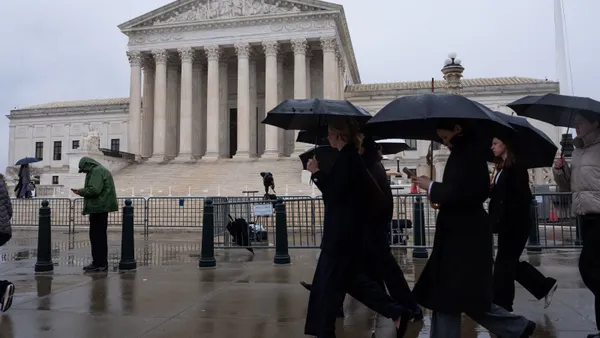Dive Brief:
- Syracuse, NY, contractor Hayner Hoyt Corporation will pay the federal government $5 million in order to settle charges that it exploited the service-disabled veterans program to win more than $14 million of government contracts, according to Business Journal News Network.
- Prosecutors alleged that executives from Hayner Hoyt, Gary and Jeremy Thurston, set up a sham company, 229 Constructors, and installed Ralph Bennett, a service-disabled veteran, as head of the company when in reality, he plowed snow and organized the company’s tools.
- Prosecutors said the Thurstons had significant influence over 229 and provided the company with resources against which legitimate service-disabled businesses could not compete. Authorities also alleged that many employees and former employees of Hayner Hoyt staffed the company.
Dive Insight:
The Thurstons admitted that they violated federal law but said it was unintentional, as they hired experts to make sure that 229 was structured the correct way.
Publicly funded projects can be lucrative, but they often come with participation requirements for minorities or other groups, such as disabled veterans in this case. Whether it’s a lack of qualified contractors to do the work or just plain greed, some companies are caught trying to get around those requirements.
This case is reminiscent of the three Pennsylvania steel executives who pleaded guilty in October to setting up a shell woman-owned business and securing $19 million worth of state and federal highway projects under the guise of being a minority-owned business. Those three were sentenced to probation and ordered to pay $1.3 million in fines.
In a similar situation last month, a bridge contractor in upstate New York settled claims that it defrauded the federal disadvantaged business enterprise program. Prosecutors alleged that ING Civil CEO Corey Ingerson and employees of a local material supplier provided the government with false documents to make it seem as if Ingerson was buying material from a minority supplier. Ingerson paid $1 million to settle the claims.
And in Colorado, MCC Construction Company pleaded guilty and was ordered to pay $1.8 million for committing minority contract fraud when it used two minority companies to win 27 government contracts worth more than $70 million.














